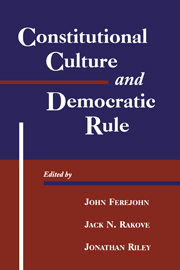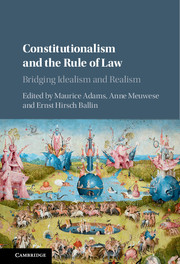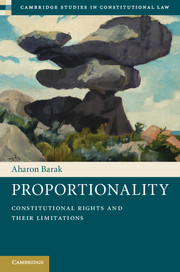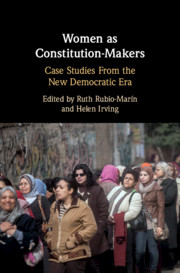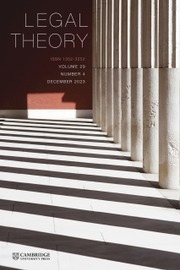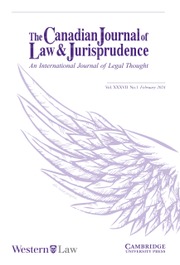Constitutional Culture and Democratic Rule
This interdisciplinary volume focuses on constitutional democracy, with special reference to the United States. The editors and contributors conceive of a constitutionalism as an ongoing process in which most members of a given community rely on certain cultural norms and practices to identify and interpret constitutional rules (written or unwritten as the case may be) that limit government power, and divide it among competing groups of leaders such that no single group has unchecked authority to pass statutes or to interpret the constitution when disputes arise.
- World-class collection on modern constitutionalism with celebrated coeditors and contributors (Rakove, Pulitzer Prize Winner)
- Breaks new ground in political science, American political and legal history, and political philosophy (not an economics book)
- General theoretical framework is actively investigated in three separate parts and fills a gap in the literature
Product details
October 2001Paperback
9780521793704
430 pages
228 × 154 × 24 mm
0.685kg
12 b/w illus. 2 tables
Available
Table of Contents
- Part I. Constitutional Democracy: Beginnings and Traditions: Editors' introduction
- 1. Constitutional problematics, circa 1787 Jack N. Rakove
- 2. Inventing constitutional traditions: the poverty of fatalism James Johnson
- 3. The birth logic of a democratic constitution Lawrence G. Sager
- Part II. Constitutional Structure and Design:
- 4. Constitutional democracy as a two-stage game Jonathan Riley
- 5. Imagining another Madisonian Republic Jonathan Riley
- 6. One and three: separation of powers and the independence of the judiciary in the Italian constitution Pasquale Pasquino
- 7. A political theory of Federalism Jenna Bednar
- Part III. Constitutional Change and Stability:
- 8. Designing an amendment process Sanford Levinson
- 9. Constitutional theory transformed Stephen M. Griffin
- 10. Constitutional economic transition Russel Hardin
- 11. Institutionalizing constitutional interpretation Jack Knight.

